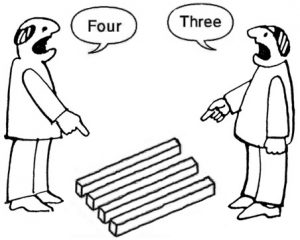 I’ve been into RPGs for a while now, and I’ve enjoyed both playing in and running the game. I guess I’d split running vs. playing as 50/50, so I’ve had my fair share of game masters to learn from, and plenty of time to solidify my own style.
I’ve been into RPGs for a while now, and I’ve enjoyed both playing in and running the game. I guess I’d split running vs. playing as 50/50, so I’ve had my fair share of game masters to learn from, and plenty of time to solidify my own style.
I recently sat in a game with a brand new game master, and (like usual) had a grand time. This was his very first time running a gaming session, and I’d say he did a good job. He’d been playing in the game for a couple of years, and he’s one of those people who can read a book and remember everything—so he’s pretty knowledgeable about the rules.
We had a good time.
Well, except for one time…
You see, right in the middle of combat a player interpreted a rule one way (in their favor), and this brand new GM interpreted it another. There was some discussion back and forth between the two… including references to forums, and I could see both were getting a bit frustrated (especially the player). I really wanted to chime in with my own two cents, but I and everyone else just waited. After a couple of minutes, the player relented and the game resumed.
Now, there’s a variety of ways this could have been handled, and I guess it depends on what the people at your table prefer. Some say it’s perfectly fine for a player and GM to discuss their interpretations right then. Others say that the GM is god and should simply make an immediate and final ruling. Others say to immediately spend time looking up the rule and dissect the wording, or perhaps going online to search forums and social media groups to seek a consensus. Sometimes there’s even a group vote!
Now, I’m not talking about when a player is unsure of a rule; I’m talking about when a player and the GM have opposing views and are sticking to their guns.
Of course, after many years of gaming, I’ve seen the best solution make its way to different tables over and over again, because it’s the best…
Rule in favor of the player… immediately.
Then, research it later. Research it after the game, or even after a good night’s sleep. When you immediately rule in favor of the adamant player (even if you know they are wrong), you’re saying that their enjoyment is important to you, and you’re helping them achieve that.
We’re sitting at the table to play a game… to play a rolelaying game. Rule discussions and arguments take you out of character, interrupt the story, and kill the mood. So what if a rule is being interpreted incorrectly? Figure it out later. Figure it out when you’re not under pressure, when the player is more likely to listen to you with open ears. Who knows? Maybe you were wrong. If you were right, you can show them the correct interpretation–later. Remember, the game master is not there to rule over the players like a god; they’re there to help everyone have fun in a fair way.
Besides, if you tend to rule in favor of the player, they’ll be more likely to trust you and accept when you actually rule against them.

Good advice.
Gamemster wins, naturally.
Absolutely. The Rule of Cool should win out. This week I ruled that no, the rules say you can’t do that but in this instance I’ll let you because what you described sounds cool – because it did.
It’s all about the game and creating a cool story together, why be a dick DM?